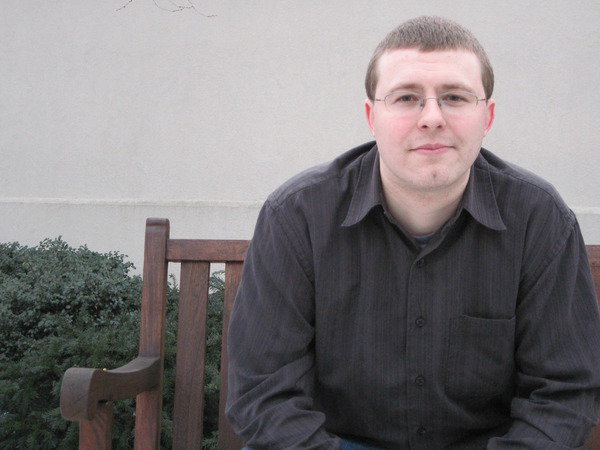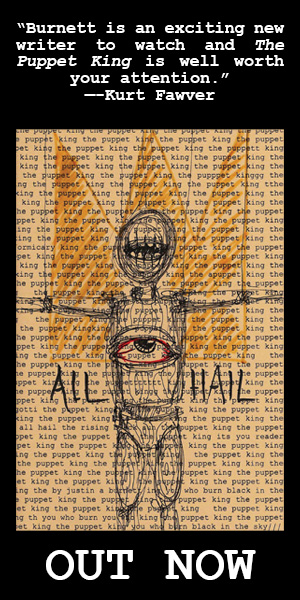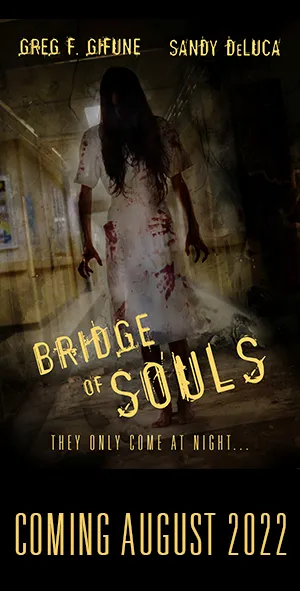Robert Swartwood is the celebrated author of the Dishonored Dead (review here.) He’s been kind enough to give us some of his free time for this interview!
1.) Can you provide a brief summary of your novel?
The Dishonored Dead is not your typical zombie novel. It’s our world in a not-so-distant future that has devolved and decayed and most of the population has become the animated dead. Those few that are still living — which are, ironically, called zombies — are hunted down and destroyed. The novel focuses on one zombie hunter who hesitates one night in killing a living adult and begins a chain reaction of events that will change the world.
2.) What were your motivations to write The Dishonored Dead?
I’m always trying to do things differently, so when I had the idea to write The Dishonored Dead, I knew I wanted to a completely different take on the zombie novel.
3.) Considering the overall plot, why did you choose to use zombies as the primary characters? Was this a metaphor or a form of symbolism?
The novel’s inception all started with the story idea of a boy who hears this strange music coming from somewhere in his backyard. And then, when I sat down to actually write the story, that changed to this first line: “Like everyone else he knew, Steven’s heart did not beat.†And the story that grew from there — “In the Land of the Blind†— was a world where the majority of people were dead but the world still had some life left in it, and of course that life was a threat to the dead and needed to be destroyed. That story won one of the *ChiZine* short story contests. Later, after it was published, a friend told me his wife had read the story and loved it but said she wished it was longer. At the time I said something along the lines that I didn’t think I was ever going to expand the story, but, as is often the case with us writers, the story stayed with me and I wondered what might happen if I tried to tell a longer story from one of the zombie hunters’ point of view.
The story that I had in mind would be nothing more than a novella (I never outline but can usually gauge the length of a story in my head). But then as I started writing it, a character appeared out of nowhere, a very minor character that was nothing more than stage decoration. While the protagonist and another character were leaving a building, they passed a janitor. Why there had to be a janitor there, I had no idea, but the janitor appeared in my head and so I placed him there. And it wasn’t until a few chapters later did the real reason for the janitor’s appearance become apparent, and suddenly what had only been a novella-length work turned into a full-blown novel. The first draft ended up at around 120,000 words and that only took me a few months to write. Then, after a major revision a few years later, it came down to a respectable 100,000 words.
But as for metaphor or symbolism? As you mentioned in your review, the two sets of groups — the living and dead — could possibly be exchanged to “depict cops versus robbers, CIA versus terrorists, US Army versus Taliban, etc.” But the same could be said for a lot of novels that feature good guys vs. bad guys. Honestly, when I first started writing the book, it never crossed my mind that the novel’s theme might come across so … well, political. What I worried about, first and foremost, was to simply tell a good and entertaining story.
4.) Looking at your other written works, this is your first foray into the zombie/apocalyptic genre, what made you look at this genre?
Again, there was no real plan. It just sort of happened. But like most people I grew up reading Stephen King, so I’ve always been a fan of horror, and the zombie genre was never one I was hesitant in trying.
5.) When you sit down and write what is your perfect writing environment, Quiet, Music, a specific room in the house? What helps get you in the mood? Watching classic horror films or…?
I usually just sit down at the computer in my office (i.e., the spare bedroom) and force myself to write. I do prefer quiet, though I did write one novel a few years ago with Mozart playing in the background (I’m not really sure what I had thought that would accomplish). And obviously the Internet is a constant distraction, so I try to stay away from it as much as possible, but of course it can be difficult.
6.) What kind of research did you do to get the ambience of the story setting, the time frame, attitudes of the characters, developing the characters, etc?
Writing a novel like this, it’s obviously important to understand every aspect of the world you’re creating. I kept a character list with notes about each character, and made sure that certain parts of their world conformed properly (i.e., instead of living rooms the dead call them “existing rooms”). But other than that, I just tried to enjoy myself.
7.) Did you find it difficult find a get this published or locate a publisher?
I found a top agent who really loved the book. He was a big zombie fan and had been keeping an eye out for what he thought would be the next big zombie novel. Unfortunately, while there were some nibbles, none of the major publishers bit as the book wasn’t your typical zombie novel. So I set it aside for a year or two until the ebook craze really hit, and I figured instead of letting it continue to collect dust on my hard drive, I would release it on my own into the wild and see what might happen.
8.) What advice can you impart to authors just starting out who want to break into the zombie/horror genre?
The best advice is to write as much as you can and to read as much as you can, both in and out of your genre. If you want to just write horror, that’s fine, but be aware of the other writers and genres out there, as many are worth reading and learning from. I have a lot of favorite authors, many of them “literary authors” who I find just as inspirational as the Stephen King and Peter Straub and Dean Koontz. But don’t just take my word on it; Brian Keene actually just talked about this same thing, and he says it a whole lot better than me.
9.) Who do you feel is directly responsible for your entry into the horror genre and specifically the inclusion of zombies into your work?
Like I mentioned, I grew up reading Stephen King, so he’s definitely a big influence. But in terms of zombies? You know, I never really thought about it. There are certainly a lot of authors who have written zombie stories in the past that I’m sure were influential, not to mention the zombie movies. I wish I could be more specific, but then I’d be lying.
10.) What and who are your favorite authors and books?
The list for both are very long, but here are some authors who have influenced me over the years: Stephen King, Peter Straub, Dean Koontz, Elmore Leonard, Dennis Lehane, T. C. Boyle, Charles D’Ambrosio, David Means, Flannery O’Connor, Charlie Huston, Stewart O’Nan, James Lee Burke, Michael Connelly, Cormac McCarthy, and Michael Crichton, just to name a few. And any if not most of their books are definitely worth reading.
11.) If you had to do it all over again, the writing, the publishing, etc, what would you do differently?
I’m inclined to say nothing, as I’m actually pretty happy where I currently am. But if I could go back, maybe I’d try to read and write even more. After all, more reading and writing never hurt anyone.
You can find out more at Robert Swartwood’s Homepage.






